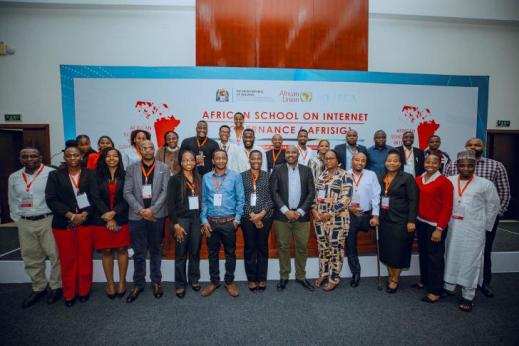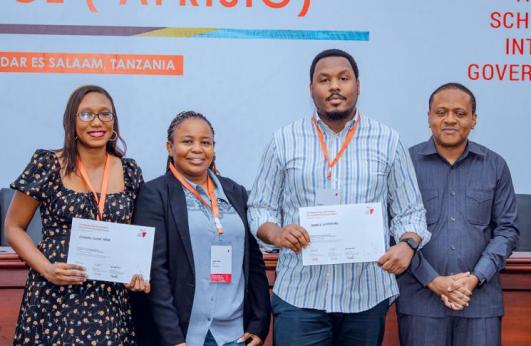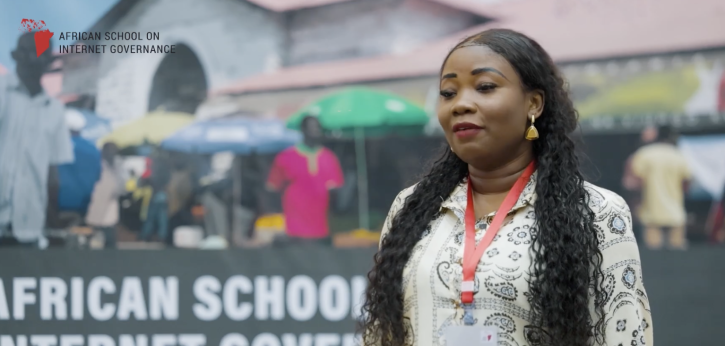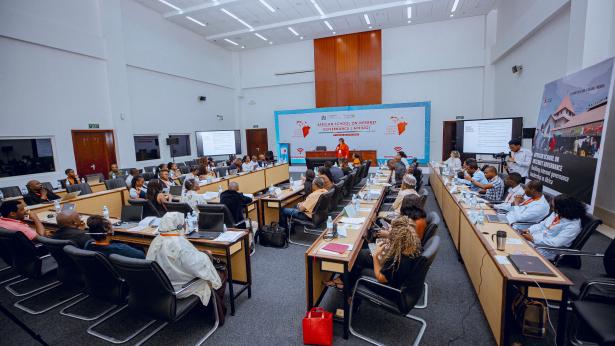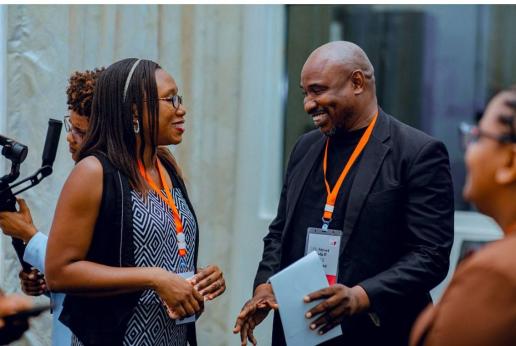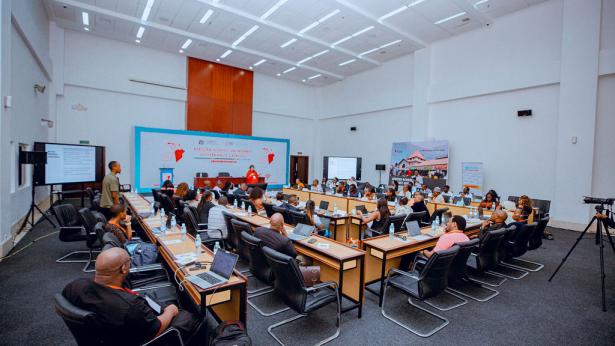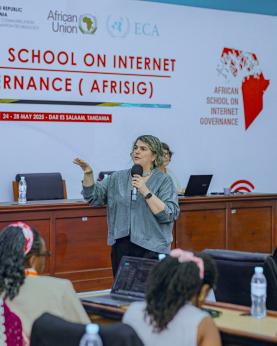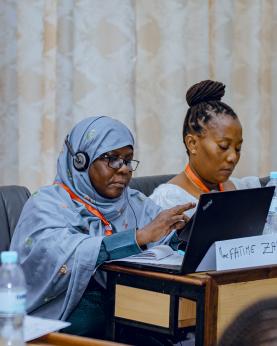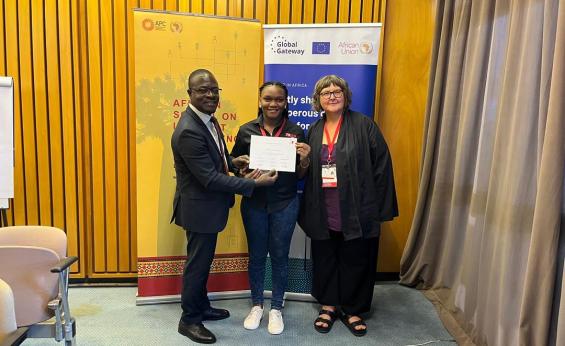From 23 to 28 May 2025, the 13th African School on Internet Governance (AfriSIG) convened in Dar es Salaam, Tanzania. Jointly organised by the Association for Progressive Communications (APC), the Information Society Division of the African Union Commission (AUC) and Research ICT Africa (RIA) in collaboration with the United Nations Economic Commission for Africa (UNECA) and the UN Internet Governance Forum Parliamentary Track, AfriSIG 2025 was an opportunity to affirm that the future of internet governance must be co-created,… Read more
News
The 2025 edition of the African School on Internet Governance (AfriSIG) took place from 23 to 28 May in Dar es Salaam, Tanzania, offering participants a comprehensive overview of internet and digital policy across Africa and globally. This year, AfriSIG placed a particular emphasis on data governance, alongside reflections on the 20-year review of the World Summit on the Information Society (WSIS+20).
A highlight of the School was the Makane Faye AfriSIG Award, presented annually since 2024 to participants who demonstrate exceptional commitment to internet governance. The award… Read more
The 13th annual African School on Internet Governance (AfriSIG) took place from 23 to 28 May 2025 in Dar es Salaam, Tanzania, offering an overview of internet and digital policy in Africa and globally. AfriSIG 2025 maintained a strong focus on data governance, with particular emphasis this year on the 20-year review of the World Summit on the Information Society (WSIS+20).
To learn more about the topics discussed and hear insights from participants, watch the videos below, which showcase highlights from this year's… Read more
The 13th African School on Internet Governance (AfriSIG) kicked off at 7:00 pm Tanzanian time on 23 May 2025 with a stylish round of self-introductions by fellows and faculty members from 13 African countries. Over the years, the school has built a solid reputation for producing future advocates of multistakeholder internet governance and for strengthening their capacity across various dimensions of the digital space.
“At the African School on Internet Governance, we choose empowerment and inclusion for all Africans to learn, aspire and act,” said Nkundwe Mwasaga, the director… Read more
I am back from the African School on Internet Governance (AfriSIG) 2025, held at the iconic Julius Nyerere International Convention Centre in the vibrant city of Dar es Salaam in The United Republic of Tanzania, and I can confidently say: my mind is full, my heart is full, and my digital rights advocacy toolkit is bursting!
AfriSIG 2025 was far more than a course. It was a launchpad into Africa’s evolving internet governance community. Every day brought fresh, thought-provoking conversations around AI, data governance, cybersecurity, digital rights and meaningful access. As someone… Read more
Participating in the Africa School on Internet Governance (AfriSIG) 2025 in Dar es Salaam, United Republic of Tanzania, marked a significant milestone in my professional journey as a fraud and cybercrime investigator. The weeklong forum was convened by diverse stakeholders to deliberate on how robust data governance can enable a secure, inclusive and rights-based digital future for Africa.
My contributions focused on bridging the gap between cybersecurity policy, digital rights and investigative practice. I highlighted the pressing need for African countries to harmonise legal… Read more
When I landed in Dar es Salaam in the United Republic of Tanzania) for this year’s African School on Internet Governance (AfriSIG), I was greeted by more than just the humid ocean breeze – there was an immediate sense of warmth that permeated every interaction. From the shuttle driver who patiently showed us places of interest as we drove to the Southern Sun Dar es Salaam, a long-standing hotel deeply invested in the city’s hospitality sector – having been officially opened by President Benjamin Mkapa himself – to fellow participants who shared stories of their home towns over five days of… Read more
It was with great joy that I participated in the 13th training course of the African School on Internet Governance, AfriSIG 2025, held in Dar es Salaam at the Julius Nyérére International Convention Centre (JNICC), United Republic of Tanzania, from 23 to 28 May 2025.
AfriSIG 2025 was an opportunity for me, as a government official, to understand the need for multistakeholder internet governance. The school provides a framework for the exchange of ideas and experiences between countries to enable them guide their telecommunications development strategies and better understand how to… Read more
In the heart of Addis Ababa, Ethiopia, from 14 to 19 November 2024, the African School on Internet Governance (AfriSIG) became a melting pot of ideas, collaboration and strategy, bringing together change makers from across the continent. This was not merely a conference; it was an unparalleled learning and networking opportunity that brought together stakeholders from over 16 African countries. The participants were as diverse as the continent itself, with voices from civil society, the technical community, academia, government, media, the private sector, and even members of parliament −… Read more
When I think of the Africa School on Internet Governance (AfriSIG), I see more than simply an event: I see a turning point moment. It was more than just a programme, it was an opportunity for me to grow, connect, and refine my role in the realm of internet governance.
As a Pan-African Youth Ambassador for Internet Governance (PAYAIG) and an advocate for digital inclusiveness, AfriSIG provided the ideal forum for me to dive more deeper into the convergence of technology, policy and activism. It was more than simply a learning experience, it was a platform for me to elevate my voice… Read more

